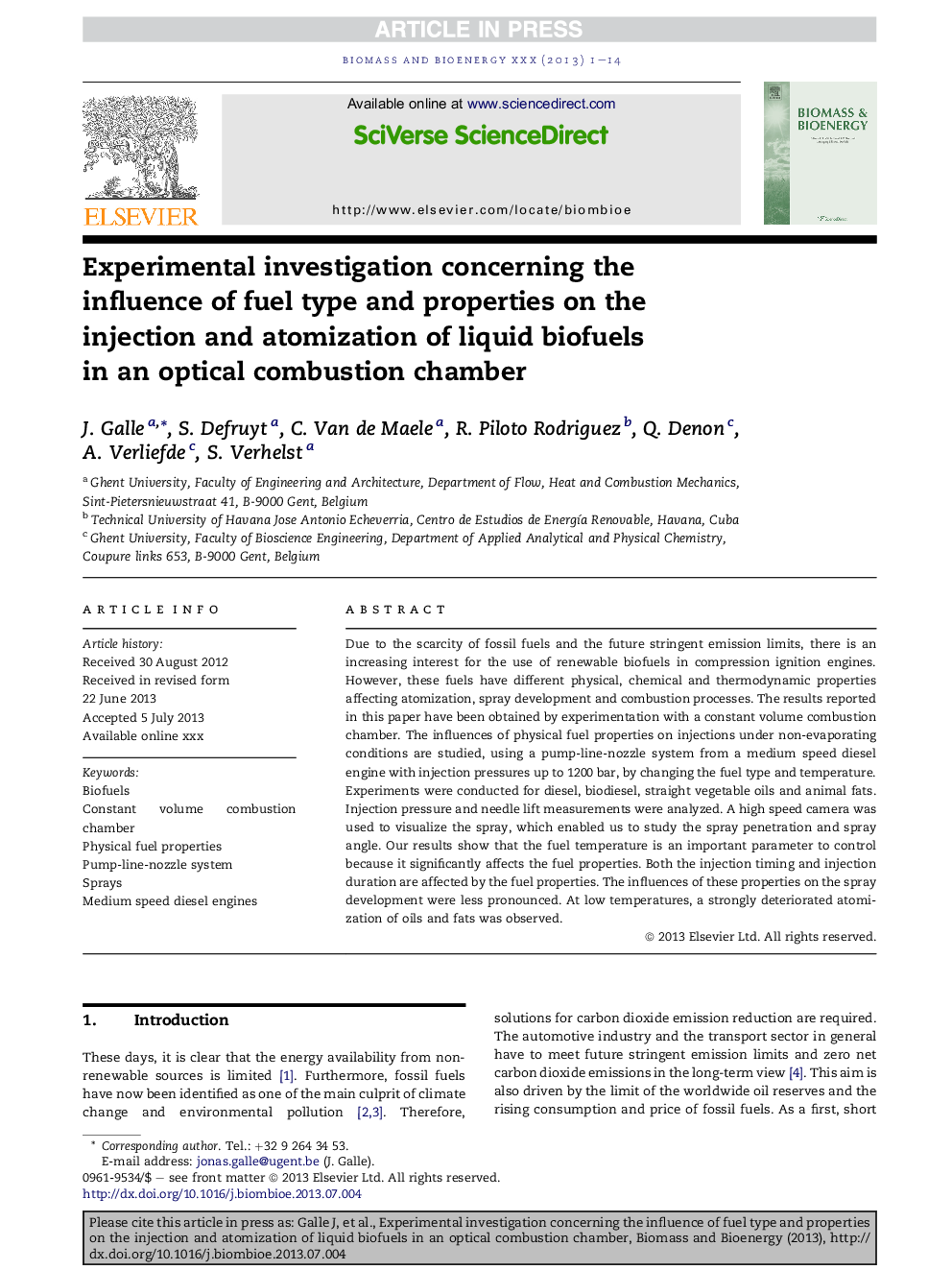| Article ID | Journal | Published Year | Pages | File Type |
|---|---|---|---|---|
| 676994 | Biomass and Bioenergy | 2013 | 14 Pages |
Abstract
Due to the scarcity of fossil fuels and the future stringent emission limits, there is an increasing interest for the use of renewable biofuels in compression ignition engines. However, these fuels have different physical, chemical and thermodynamic properties affecting atomization, spray development and combustion processes. The results reported in this paper have been obtained by experimentation with a constant volume combustion chamber. The influences of physical fuel properties on injections under non-evaporating conditions are studied, using a pump-line-nozzle system from a medium speed diesel engine with injection pressures up to 1200Â bar, by changing the fuel type and temperature. Experiments were conducted for diesel, biodiesel, straight vegetable oils and animal fats. Injection pressure and needle lift measurements were analyzed. A high speed camera was used to visualize the spray, which enabled us to study the spray penetration and spray angle. Our results show that the fuel temperature is an important parameter to control because it significantly affects the fuel properties. Both the injection timing and injection duration are affected by the fuel properties. The influences of these properties on the spray development were less pronounced. At low temperatures, a strongly deteriorated atomization of oils and fats was observed.
Related Topics
Physical Sciences and Engineering
Chemical Engineering
Process Chemistry and Technology
Authors
J. Galle, S. Defruyt, C. Van de Maele, R. Piloto Rodriguez, Q. Denon, A. Verliefde, S. Verhelst,
